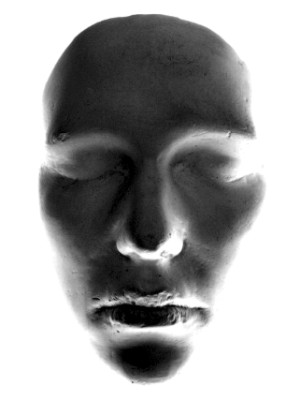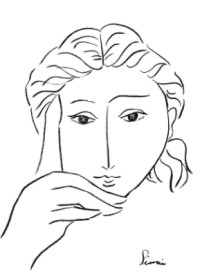|
Impressions
The Death of Identity
Nusrat Jahan Pritom
 Shirin, a housewife and a doctor has no entity. She may have had great accolades at her school and college, professionally she may have excellent records, yet she is almost nobody in the place she calls home. Her husband, a government officer, who is an ideal example of a male chauvinist, never approves of the disparity in status between them, where the wife has better achievements. His parents, siblings, kith and kin and even society back him up. Why does she have to work, why do the kids not have their favourite snack in their tiffin box, why was she late! The fingers always point at her even if she is 15 minutes late from workplace while her husband who may be hours late does not have to answer to anyone. She is always blamed for not making the tea on time or keeping the rooms tidy enough, her cooking is not good enough and so on. Shirin, a housewife and a doctor has no entity. She may have had great accolades at her school and college, professionally she may have excellent records, yet she is almost nobody in the place she calls home. Her husband, a government officer, who is an ideal example of a male chauvinist, never approves of the disparity in status between them, where the wife has better achievements. His parents, siblings, kith and kin and even society back him up. Why does she have to work, why do the kids not have their favourite snack in their tiffin box, why was she late! The fingers always point at her even if she is 15 minutes late from workplace while her husband who may be hours late does not have to answer to anyone. She is always blamed for not making the tea on time or keeping the rooms tidy enough, her cooking is not good enough and so on.
Time and again, she gets abused. All her earnings have to be given to her 'guardian' i.e. her husband, at the beginning of the month. The family knows that only the man's income would not have been enough to support the family, that she must also step out to make ends meet. But despite knowing this she is constantly faced with coldness, sneers, disapproving glances and sometimes physical abuse. Is this justice? Though it may not be so, this is the modus operandi. It is a system adopted by society for generations. The woman cannot refuse if even after the weary working hours she is asked to arrange delicacies for the family. Even though she may be equally tired as the husband, she has no right to relax, let alone have leisure -- she is a woman, so she is a wife, a mother and a daughter-in-law in her household and society. She may be doing the great service of healing; contributing her part to society (as a doctor for example), society hardly acknowledges her.
Selina Akhter, a human rights worker says, "Patriarchy has become a major component, of the society. Women are always suppressed almost in every sphere of life. She is raised with the discipline and duties of a wife ingrained in her habits. If she can talk smartly, look beautiful, learn to be an excellent cook, she is termed as 'perfect'; an ideal wife/mother. However, her talents, her qualities are hardly ever acknowledged if they do no conform to such roles. She is hardly ever called 'brilliant' or 'wise,' because to society she will only be clay to be moulded and shaped according to the specifications of the 'ideal woman'.
Men of course, are free to be whatever they want to be and it is not required that they conform to a particular mould.
 While growing up a girl is kept secluded from the world around her depriving her from sound thinking. She is even taught what she should like, such as cooking and how she should look. Selina Akhter has almost come to the verge of giving up her successful business entity just for this fight for her entity as a woman. This unjust disparity is everywhere--books, media, law, current philosophy, etc. Somehow the woman gets the worst deal out of life. If she is dark-complexioned, she is shown pity or contempt until she can with cosmetics change herself into a fair-hur pori. If the girl is tomboyish and keeps short hair she is treated with suspicion. The ideal young woman is always a dainty, demure, grateful girl with long silky hair (as portrayed in TV commercials). In time cooking, watching/reading romantic stories looking after the family engrosses her so completely that she is left with almost no time to think of who she really is and what she is capable of. Her talents, her knowledge, her potential are all enmeshed in a state of ennui and artificiality or superficiality. While growing up a girl is kept secluded from the world around her depriving her from sound thinking. She is even taught what she should like, such as cooking and how she should look. Selina Akhter has almost come to the verge of giving up her successful business entity just for this fight for her entity as a woman. This unjust disparity is everywhere--books, media, law, current philosophy, etc. Somehow the woman gets the worst deal out of life. If she is dark-complexioned, she is shown pity or contempt until she can with cosmetics change herself into a fair-hur pori. If the girl is tomboyish and keeps short hair she is treated with suspicion. The ideal young woman is always a dainty, demure, grateful girl with long silky hair (as portrayed in TV commercials). In time cooking, watching/reading romantic stories looking after the family engrosses her so completely that she is left with almost no time to think of who she really is and what she is capable of. Her talents, her knowledge, her potential are all enmeshed in a state of ennui and artificiality or superficiality.
These are what women must abide by. Time and again, there arise a few revolutionists like Akhter who abandon all forms of luxury and ease and has embraced suffering just for the sake of Truth. Nila, a middle-aged businesswoman who have a dispute over the claim of land with her neighbour is just one example. Whether it is the lawyer, the police or even feminist social workers, they all discourage her in her proceedings because she is a woman. More than the land, she is fighting for her dignity. But she is only met with 'kichu hobena eshob kore "(there is no use doing all these) mainly because her rival is a man. It is the same story for Risha, who is fighting for her property for 10 years. Countless other women are silently suffering either in their homes or outside it, being deprived of their rights, their dignity and sometimes even their lives. Most of these stories never even make it to the papers, or in the media, or anywhere. Lives are burnt or fade away into oblivion. This is the status quo that society continues to maintain. But when will we have the courage to change it?
Copyright (R) thedailystar.net 2007 |
